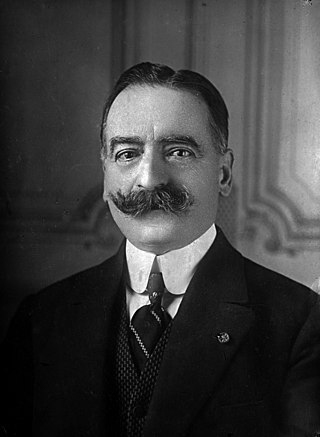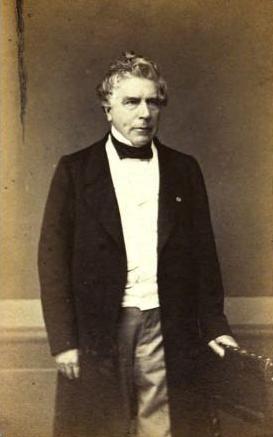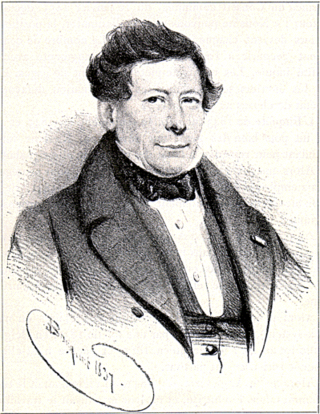
Sources
- Government of Belgium. Library of Parliament. "Prime Minister". Retrieved August 17, 2020
This is a graphical lifespan timeline of prime ministers of Belgium. Fifty-three persons have served as Prime Minister of Belgium since the office came into existence in 1830, although it was named Chief of Government from 1830 until 1918. They are listed in order of office (prime ministers leading nonconsecutive governments are listed in the order of their first premiership).


A prime minister,premier or chief of cabinet is the head of the cabinet and the leader of the ministers in the executive branch of government, often in a parliamentary or semi-presidential system. Under those systems, a prime minister is not the head of state, but rather the head of government, serving under either a monarch in a democratic constitutional monarchy or under a president in a republican form of government.

The prime minister of the United Kingdom is the head of government of the United Kingdom. The prime minister advises the sovereign on the exercise of much of the royal prerogative, chairs the Cabinet and selects its ministers. As modern prime ministers hold office by virtue of their ability to command the confidence of the House of Commons, they sit as members of Parliament.
The head of government is the highest or the second-highest official in the executive branch of a sovereign state, a federated state, or a self-governing colony, autonomous region, or other government who often presides over a cabinet, a group of ministers or secretaries who lead executive departments. In diplomacy, "head of government" is differentiated from "head of state" although in some countries, for example the United States, they are the same person.

The politics of Belgium take place in the framework of a federal, representative democratic, constitutional monarchy. The King of the Belgians is the head of state, and the prime minister of Belgium is the head of government, in a multi-party system. Executive power is exercised by the government. Federal legislative power is vested in both the government and the two chambers of parliament, the Senate and the Chamber of Representatives. The federation is made up of (language-based) communities and (territorial) regions. Philippe is the seventh and current King of the Belgians, having ascended the throne on 21 July 2013.

Gaston François Marie, viscount Eyskens was a Christian democratic politician and prime minister of Belgium. He was also an economist and member of the Belgian Christian Social Party (CVP-PSC).

The Prime Minister of Belgium or the Premier of Belgium is the head of the federal government of Belgium, and the most powerful person in Belgian politics.
A deputy prime minister or vice prime minister is, in some countries, a government minister who can take the position of acting prime minister when the prime minister is temporarily absent. The position is often likened to that of a vice president, as both positions are "number two" offices, but there are some differences.
A minister is a politician who heads a ministry, making and implementing decisions on policies in conjunction with the other ministers. In some jurisdictions the head of government is also a minister and is designated the ‘prime minister’, ‘premier’, ‘chief minister’, ‘chancellor’ or other title.

Edmond Jules Isidore Leburton was a Belgian politician who served as the prime minister of Belgium from 1973 to 1974.

Barthélemy Théodore, Count de Theux de Meylandt was a Belgian Roman Catholic politician who served as the prime minister of Belgium three times. His family de Theux de Meylandt et Montjardin originated in Theux in 1341.

The Federal Government of Belgium exercises executive power in the Kingdom of Belgium. It consists of ministers and secretary of state drawn from the political parties which form the governing coalition. The federal government is led by the Prime Minister of Belgium, and ministers lead ministries of the government. Ministers together form the Council of Ministers, which is the supreme executive organ of the government.

Charles Marie Pierre Albert, 1st Count de Broqueville was the prime minister of Belgium, serving during World War I.

Charles Latour Rogier was a Belgian liberal statesman and a leader in the Belgian Revolution of 1830. He served as the prime minister of Belgium on two occasions: from 1847 to 1852, and again from 1857 to 1868.

The Constitution of Belgium dates back to 1831. Since then Belgium has been a parliamentary monarchy that applies the principles of ministerial responsibility for the government policy and the Trias Politica.

Philippe Félix Balthasar Otto Ghislain, Count de Merode, known as Félix de Merode, was a Belgian politician.

Félix Amandus, Count de Muelenaere was a Belgian Roman Catholic politician who served as the prime minister of Belgium from 1831 to 1832

Belgium–France relations are the interstate relations between Belgium and France. Relations were established after the independence of Belgium. Both nations are great allies. Both nations have cultural similarities. Both nations are founding members of NATO, the Organisation internationale de la Francophonie and the European Union.

The Iron Cross was established by law in 1833 following the end of the Belgian Revolution to recognise serious wounds received and bravery in battle by Belgian citizens taking part in the fight for Belgian independence from the United Kingdom of the Netherlands between 25 August 1830 and 4 February 1831. A further royal decree of 22 August 1834 created a second class to the Iron Cross for award to all wounded combatants. Due to the lower perceived importance of the second class award and discontent among recipients, the Iron Cross second class was short-lived and amalgamated to the Iron Cross first class by decree of 21 February 1835. All recipients now received the (original) first class award.